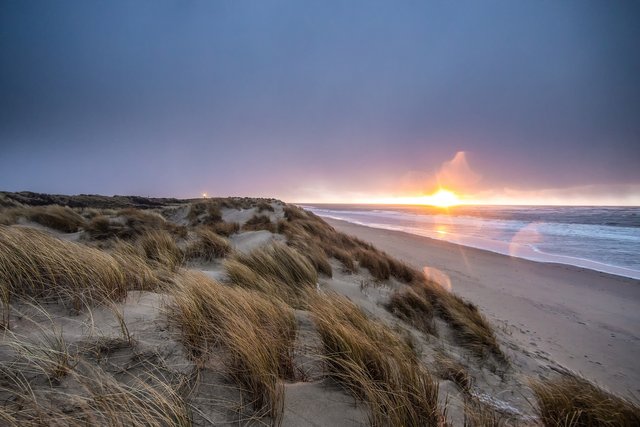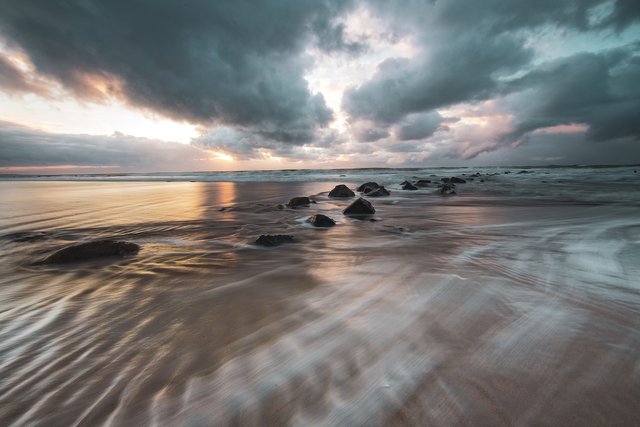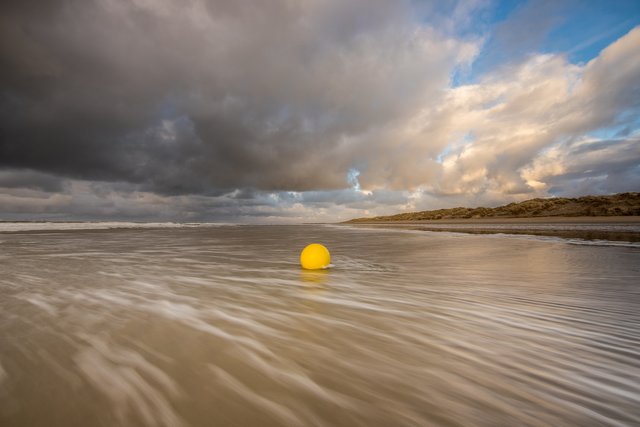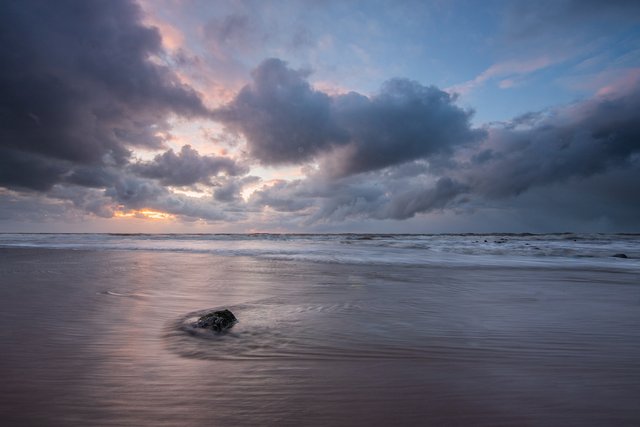Zeeland beach photography session! part 2
If you reed the topic you probably think that looks like the country of New Zealand. You are wright, the Dutch Abel Tasman was the first European to set food on the island of New Zealand in 1642. They named the country after the Ducht province of Zeeland! And that's where i am discoverering the beach for you!
Ouddorp beach!
A smal town in the province of Zeeland is Ouddorp. They normally have a very wide stretch of beach but due to the storm, much of the beach is under water.
This picture was taken during low tide, rain, hail and wind hit me pretty hard. The lens was full of droplets continuously. I tryed to brushed the biggest on away in lightroom. The one around the sun where to difficult to remove but I think they look pretty good like this!
 F4 1/60 sec ISO 1250 Leefilter NDG 0.6 medium
F4 1/60 sec ISO 1250 Leefilter NDG 0.6 medium
Breakwater!
On strategic places along the beach there are breakwaters on/in the sand. These piles of basalt blocks break the incoming waves so that the power of the water is reduced and les sand is washed away in to the North-sea. These blocks are pretty heavy and pretty firm in there place. But the sea during a storm just tumbles them around like it's nothing. The waves hitting those rocks can make a pretty good landscape photo and as you can see in the clip it's a good work out to get the wright shots.
 F16 1.3 sec ISO50 Leefliter NDG 0.6 hard
F16 1.3 sec ISO50 Leefliter NDG 0.6 hard
If the tides are high you are not able to see the breakwaters and that can be very dangerous so they markt the beginning and the end of the breakwater with a buoy. And just as the basalt, these buoy's are a nice interruption in a good landscape picture. They are chained up to the biggest basalt block and they floot at high tide. I love the yellow popping out like that!
 F22 1/2 second ISO 50 Leefliter NDG 0.6 hard
F22 1/2 second ISO 50 Leefliter NDG 0.6 hard
And when the rocks come lose they are nice objects on the beach for some long exposure shots. This is a little one witch came lose due to the current on the beach.
 F18 1/2 second ISO 100 Leefilter NDG 0.6 hard
F18 1/2 second ISO 100 Leefilter NDG 0.6 hard
When you ar trying long exposures shots like this its good to wear some watertight cloths and some boots. If you are going deeper in the water, take some duck-tape and tape off your watertight trousers to your boots so there is no water coming in that way. Take your tripod and press it into the sand as firmly as possible. The receding water will suck out the sand from under the tripod. Play with the shutter speeds, it all depends on the speed of the water. If it flows very quickly, maybe you want a faster shutter speed. When the water is calmer you wil probably need a slower shutter speed. But the most important thing is just have fun outside.
The video you just watched was shot in my Samsung S21 Ultra. I am learning how to film and these conditions where pretty hard. So excuse me for the shaking.
@tipu curate
Upvoted 👌 (Mana: 0/4) Get profit votes with @tipU :)
Congratulations @haastrecht! You received the biggest smile and some love from TravelFeed! Keep up the amazing blog. 😍 Your post was also chosen as top pick of the day and is now featured on the TravelFeed.io front page.
Thanks for using TravelFeed!
@smeralda (TravelFeed team)
PS: You can now search for your travels on-the-go with our Android App. Download it on Google Play